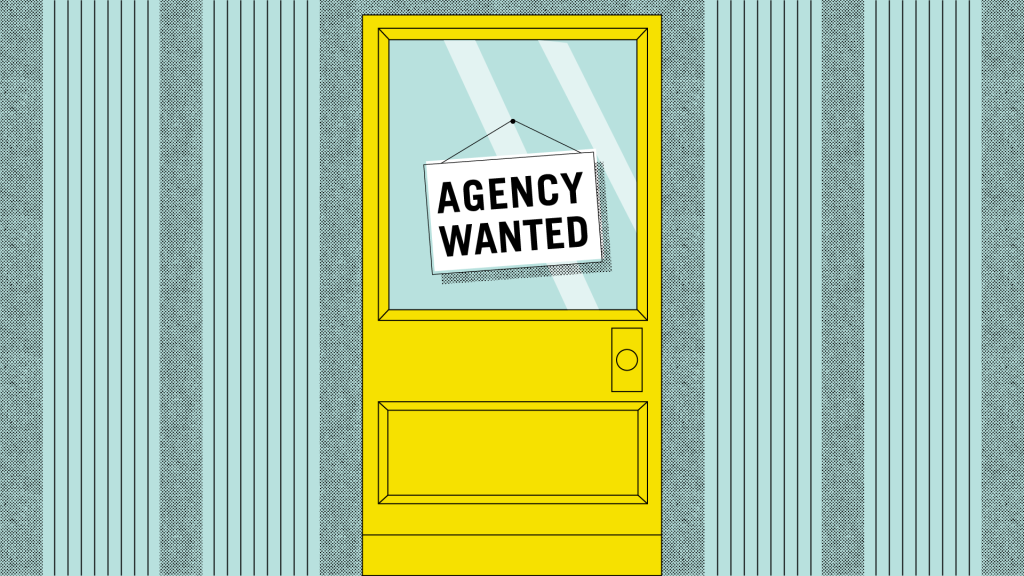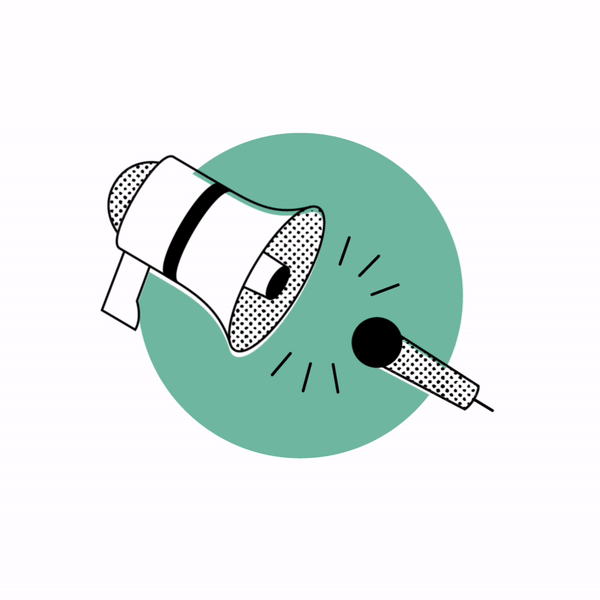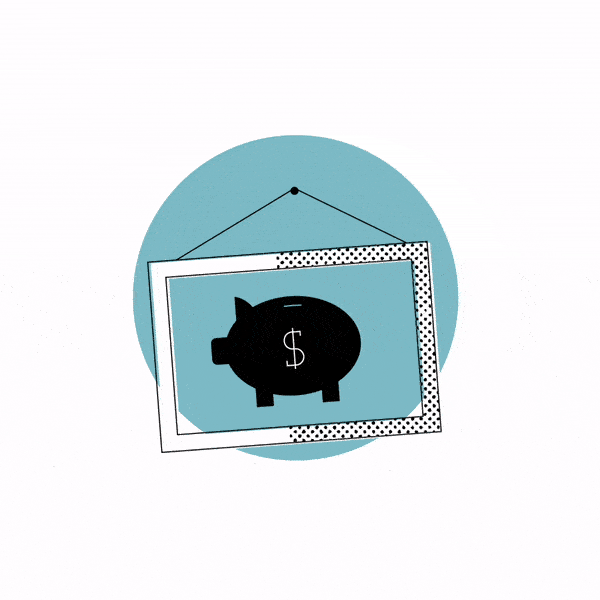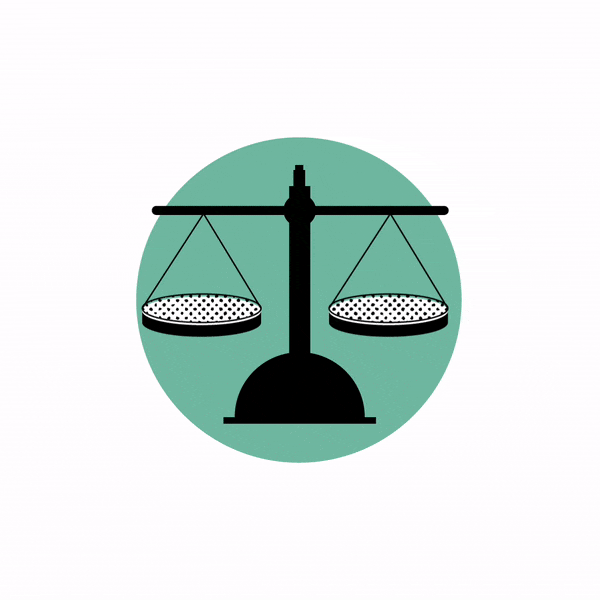So You’re Thinking About Hiring an Agency
No time to read? Listen to an audio version of this blog below. Once you’ve finished, check out the bonus discussion here.
10 Questions to Ask Before You Start the Search
Marketing a bank is harder than ever. New techniques and technologies abound. The never-ending cycles of approvals to adopt change are extended as IT and compliance departments balance advancement against risk. On top of that, most banks are actually performing pretty well—which sounds great…until you’re challenged to do better next year.

Beyond that, there’s a statistic that looms large. Five years ago, there were 5,818 banks in the U.S. At the end of 2018, there were only 4,687. That’s a 20 percent shrink. And it’s not like the competition went away. Before, you were battling against peers. Now that many banks have consolidated or been scooped up by megabanks, you’re battling giants.
As banks realize the need to grow in marketing sophistication, many are reaching out to agencies for the first time. I want to help you find one—and it doesn’t even have to be mine.
Now, let’s address the elephant in the room: “But you own an ad agency!” I sure do. But I’ve learned a big lesson over the years in this business: good relationships are worth their weight in gold. I’ve learned a few other things in that time, and I want to share some of them with you. There are no “truth bombs” here. Most of it is common sense. These are questions you should ask yourself before starting the agency search, or at least should consider before making the final selection. You’ll not only want to ask yourself, but also ask the agency(ies) that will do your work.
I’ll start with a bonus “thing.” Forget the stereotypes you’ve heard about agencies. Creatives are lazy…Agencies will talk down to you…It’s all like Mad Men. (I’ve had several mentors confirm the realism of that show, but those days have passed.) Some of these stereotypes are true of some agencies, but they are not the norm, and they are certainly not the standard. Many banks enter the agency search trying to find the “least bad” agency and are surprised when they still wind up with a bad agency. Look for the best, and accept nothing less.
Ok. One more bonus thing and then we’ll start. It’s really not about hiring the best agency, but the best fit. It would be a tragedy to hire an agency with terrible creative talents, but it’s worse (by many orders of magnitude) to hire an agency that’s a bad fit. Only consider agencies with creative/technical products that resonate with you, then hire the one you like best. Work with a group you like working with, and the work will be much, much easier and much, much better.
This is why you can trust my advice as an agency owner. Even if I spent the rest of this article trying to subliminally convince you that we’re the best bank marketing firm out there (even though we are), I couldn’t determine if we are a fit. And I’m much more concerned with fit. You should be, too. Trust me.
So how do you find the best fit for your bank?
Ask yourself these questions:

1. Do you want to delegate or collaborate?
There are two general categories for agency relationships. In one, a bank seeks an agency to which they can hand over all work, responsibility, and results. In the other, a bank seeks an agency with whom they can work together to determine the best approach on all work and divide responsibilities for the best results.
One of these works and one doesn’t.
If you want to hire an agency that just does the work for you, I can bet on your disappointment and I’ll win nine out of ten times. An agency is not a rescue, but it is an aid.
Collaboration doesn’t mean equal effort; it just means you’re present. It means you’re working with the agency. You have to be the lifeline into your bank, providing insights that outsiders can’t intuit on their own. Some of these are emotional. Some of these are technical (“we’re about to open a new branch, and we can give you two extra weeks to work on creative by letting you know early”).
A death knell of a bad relationship is when I want to say to a client: “I can’t care more about the success of your business than you do.” If you hire an agency, it’s probably because you need to delegate. But delegation combined with collaboration is much more successful than delegation without any interest in the process. If you have no interest in marketing, it’s going to be hard for the agency to sustain excitement just over the amount of money they’re billing you.
Keep in mind that as the client, you are the boss. Are you ready to lead the marketing efforts or are you looking for a swift handoff?

2. Can you clearly communicate your needs?
It might seem obvious, but if I have to say it, you must assume I’ve faced it. Before beginning your search for an agency, you must begin with some internal needs assessment. Per the first item, you have to be more specific than wanting “marketing help.”
Can you articulate (specifically) what you want your agency to do? Perhaps it is general strategic help. Or maybe it’s more focused:
- You need to update your
website. - You need to catch up on
digital media. - You need a new brand.
Whatever your needs, you need to be able to define them internally before reaching out. A large portion of a new agency relationship is building rapport, calibrating vocabulary (making sure you understand one another’s technical jargon) and getting on the same page. It’s not just that you need to be able to communicate your needs to your agency—you need to understand them yourself.
It’s not just about preparation. It’s about clarity and direction. Any new agency will have to onboard to understand the strategy, personality, etc. of your organization. You’ll waste valuable time and money if your agency is charging to not only figure out how to do the work but also what work to do.
Internal clarity is also important. Do your key stakeholders understand why you need an agency and what you need from that agency? Your agency will have trouble nailing down what they need to do if they’re getting conflicting messages from the marketing director, CEO and executive vice president of retail. And you will grow to resent the agency for not understanding.
If you truly don’t know where to start, you might want to engage a company with an “opportunity audit.” Create this as a separate assignment in which you’re asking an agency (or consultancy) to see where you can find the most success with your advertising dollars. This can be guidance around product promotion, advertising technique, audience identification or a combination of these (plus many more factors).

3. How will you know it works?
Not only do you need to know what you need your agency to do, but you also need to understand how to measure the performance of the efforts. That might be timelines, results or other factors (and combinations thereof). Clearly communicating your goals and how those goals are measured is as vital as knowing what you want.
Timeline – Ask your agency how long it takes to complete the types of projects you’ll be requesting and be sure to communicate your absolute due dates early and often.
Results – Marketers who say they can promise specific results—whether it’s click-through rates or actual deposits—are lying. It’s a subjective art. But knowing the targets your campaign needs to hit can help your agency develop a more effective strategy. There are always quantitative indicators of success. While marketing is full of nuance and circumstance, we can certainly see the markers of performance.
Budget – Every agency bills differently and every bank pays differently, but know that every request you make will likely have a dollar amount attached to it. Agree to these term up front and be sure to communicate them frequently.
Many factors that will measure success are kept within the crypts of your bank’s data systems. While Google Analytics and click-throughs can indicate performance, most of us will really be judged by account openings (and those accounts actually being funded), loan growth and share-of-wallet product adoption. You must be a conduit between your bank and the agency to truly track performance.

4. Do you need bank-focused knowledge or localized service?
You likely have two options for agencies: a local agency in your marketplace or a bank-specific agency.
Each has its pros—and cons.
Obviously, bank-focused agencies claim expertise in the same field and bring value from relevant experience, but you might not be able to meet in person as much as you’d like. You must be comfortable using technology to communicate with faraway agencies. Also, be sure to vet their knowledge. I said “claim” on purpose because I’ve seen some bank marketing firms that might know banking or might know marketing, but don’t know both. There are a handful of peers I would recommend at any point and time, but beware bad actors.
Local agencies will provide greater in-person access to a team, but most lack relevant financial industry experience. But don’t count these guys out. I didn’t always know bank marketing, and neither did you. It’s quite possible a non-bank firm will bring new insights. They also have a better understanding of local culture. However, you may find yourself explaining banking principles more than you’d like—saying, “Good idea, but we can’t do that due to Regulation XYZ.” Or you might both miss it. Be sure to have a good compliance backstop if you go local.
Remember that you’ll have to provide what the agency is missing. You might have to relate local culture in one case or explain banking products in another. Only you can decide which route you want to take, but make sure this is a matter that has been discussed and decided upon internally.

5. Do you need one comprehensive solution or a mix of specialists?
Some agencies have a diverse set of services under one roof, and others focus on one area—such as video production or digital advertising.
Do you want to work with an agency that will handle all of your needs, or do you want to be more hands-on, managing individual projects with multiple groups of creatives?
Working with multiple agencies likely means you will have more control over the individual projects. For instance you could find a great fit for general day-to-day needs and add a specialist for a set of animated explainer videos. However, it means you’ll be carrying a much larger workload. You’ll also have to work harder to make sure your brand is consistent from project to project.
Working with an agency that offers all marketing services under one roof means you’ll likely be assigned a project manager to handle some of that workload (if you’re the kind of person who can relinquish it), but also to make sure the designers, photographers, writers and developers are all familiar with your brand standards.
The ability to choose one or many agencies might seem granular, but few consider the amount of choice they have in agency selection.

6. Are you willing to overcommunicate?
Some agencies may be able to complete your sentences, but they can’t read your mind.
Communication breakdowns are likely the most pervasive of all agency problems. Per the first question on this list (notice how many of these questions relate to that one item?), you must be the communicator from your bank to the agency. And you must be willing to overcommunicate.
This isn’t an agency owner passing the buck. No agency wants to tell you that they’re dealing with multiple clients, but it’s the truth (unless you want one hell of a bill). At the same time, they’re working in a creative environment, and you’re working in a bank—just because you’re on the same page with an idea doesn’t mean you will both execute it the same.
On top of all of this, your agency will likely have to do some of the most critical work for your bank at the very beginning of the relationship. This means they’re doing incredibly important work before they fully understand the totality of your business. There’s no other way to do it. If you wait until it’s all comfortable, it will always be too late.
If you’re going through the effort of hiring, working with, and paying an agency to work with your bank, make sure you can give them the benefit of the doubt. An agency’s best metric of success is the success of its clients. It’s improbable they will intentionally undermine you.
Maybe you hate your agency’s project management system or aren’t satisfied with the inconsistent response time. There’s a chance they can accommodate change, but if they’re worth their salt, they’ll at least listen to you. Regardless, both of you should work toward a solution. Your feedback is invaluable in that process.
Let your agency know what you like and what you don’t like about the relationship. Open, solution-seeking communication will go a long way toward overall success.

7. Can you facilitate with transparency?
Keep your agency apprised of the goings-on at your bank. If your bank is expanding into a new market or discontinuing a product, your agency needs to know. They’re charged with helping you develop your marketing strategy, and they can’t do that with only a piece of the information. You’ve likely asked them to sign an NDA (and we already established that you shouldn’t work with an agency you can’t trust anyway) so fill them in on what’s coming up. It will only benefit your bank’s marketing in the long run.
Don’t try to protect your agency’s feelings by keeping your frustrations (or praise) to yourself. Any creative adept at working in collaboration can handle criticism. If your CEO hates an ad, you’re not helping anyone by keeping that to yourself. Your agency will just keep making ads your CEO hates unless they know what not to do. This will do nothing for your relationship with executive management and will only cause further damage.
If you’re the type of person who feels stuck between sides that seem to be at odds, I feel for you. I don’t have any simple advice for you. Even if it’s tough, you’ll have to power through or find someone else on your team to deliver the clear feedback to your agency.
The best agencies keep a running document of the things your bank has historically approved, rejected, liked, hated, benefited from, etc. If you say, “Everyone loves it,” when everyone doesn’t, everyone is going to be frustrated when they bring something similar back for the next project. You might not intentionally mislead, but lack of true clarity can be just as damaging in the long run. Keep in mind—good creatives have been put through the wringer on critiques. Just be sure to be the bridge that helps find solutions by making constructive, valid suggestions for changes to work to meet the needs of your institution.

8. Will you share your budget?
Some marketing directors push back when asked to share their budget. It’s understandable, but remember that you have all the power—you’re still the one allocating spending and signing checks. You should be signing off on every project before kickoff, so the agency can’t run rampant with your budget.
If your agency has a full picture of the playing field, it helps them to build a realistic plan. Just because your agency knows your budget, it doesn’t mean they can (or intend to) spend it. You still have to approve projects.
And like I’ve said a few times already, you shouldn’t work with an agency you don’t trust with this level of transparency.
A good agency partner can provide as much value in planning as in execution—if you let them.

9. Have you considered the politics?
Do you have internal creatives? Writers? Designers? Social media people? Be upfront with your agency about those roles and responsibilities. You will find out quickly if your agency can play well with others. The best agencies will relish the opportunity to arm your in-house creatives (and will appreciate the help in execution).
Make certain everyone is on the same page and has rapport. It’s your relationship to manage. Also, ensure all team members (from your bank and the agency) know each other, understand their own roles, and each other’s responsibilities.
And never leave difficult people in the dark. Too many people avoid involving a negative Nelly. But imagine how negative Nelly will be when she finds out she’s been left out completely. Getting people involved doesn’t mean you have to follow their input to the letter. Listen to difficult people like you would anyone else—get their input and then take the good and leave the bad.
Have as many difficult conversations about roles and responsibilities as you can in the beginning, and the process will run much more smoothly. After all, you don’t want to find out someone you disagree with has been calling your agency without your knowledge and ordering contradictory work. That’s frustrating and expensive.

10. Can you hire an agency that meets similar standards?
In the end, if you can’t hold your agency to similar standards you’re holding your internal stakeholders to, you need to consider finding another agency. There are so many ways that agency/client relationships fail. Any seed of contempt can grow into a wedge if you don’t have clarity, understanding, and open communication. You’re both pushing the same boulder up a mountain, but you’re working together remotely (whether that’s a block away or 1,000 miles across the country). It’s tough work.
On the other hand, finding an agency you can communicate openly, disagree honestly, and collaborate freely with is the stuff of magic. The work you see on our site is built by spending as much time building healthy, elevating relationships as we spend on the creative output. As you look for the best agency for your bank, I hope you find the best fit.


